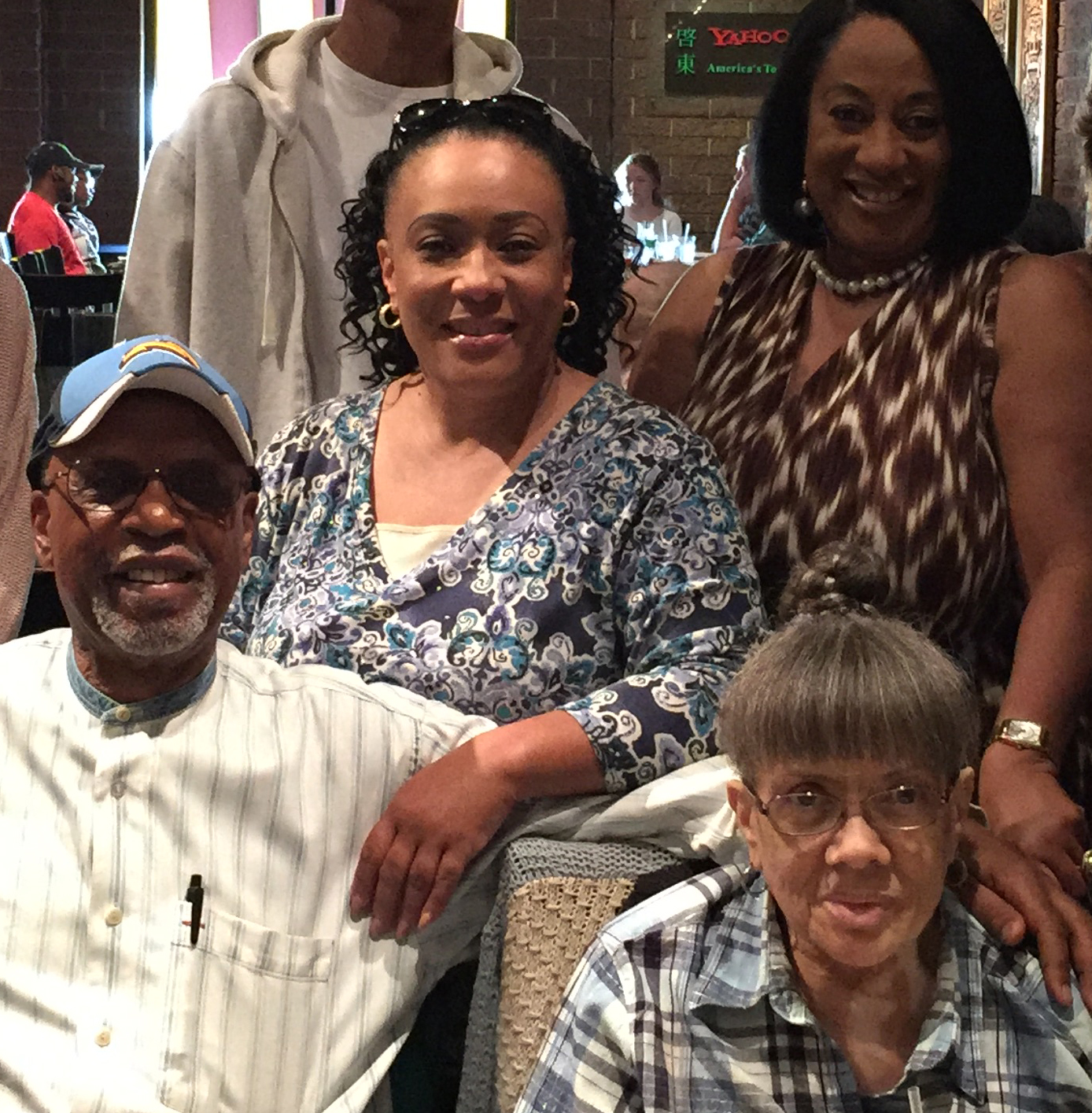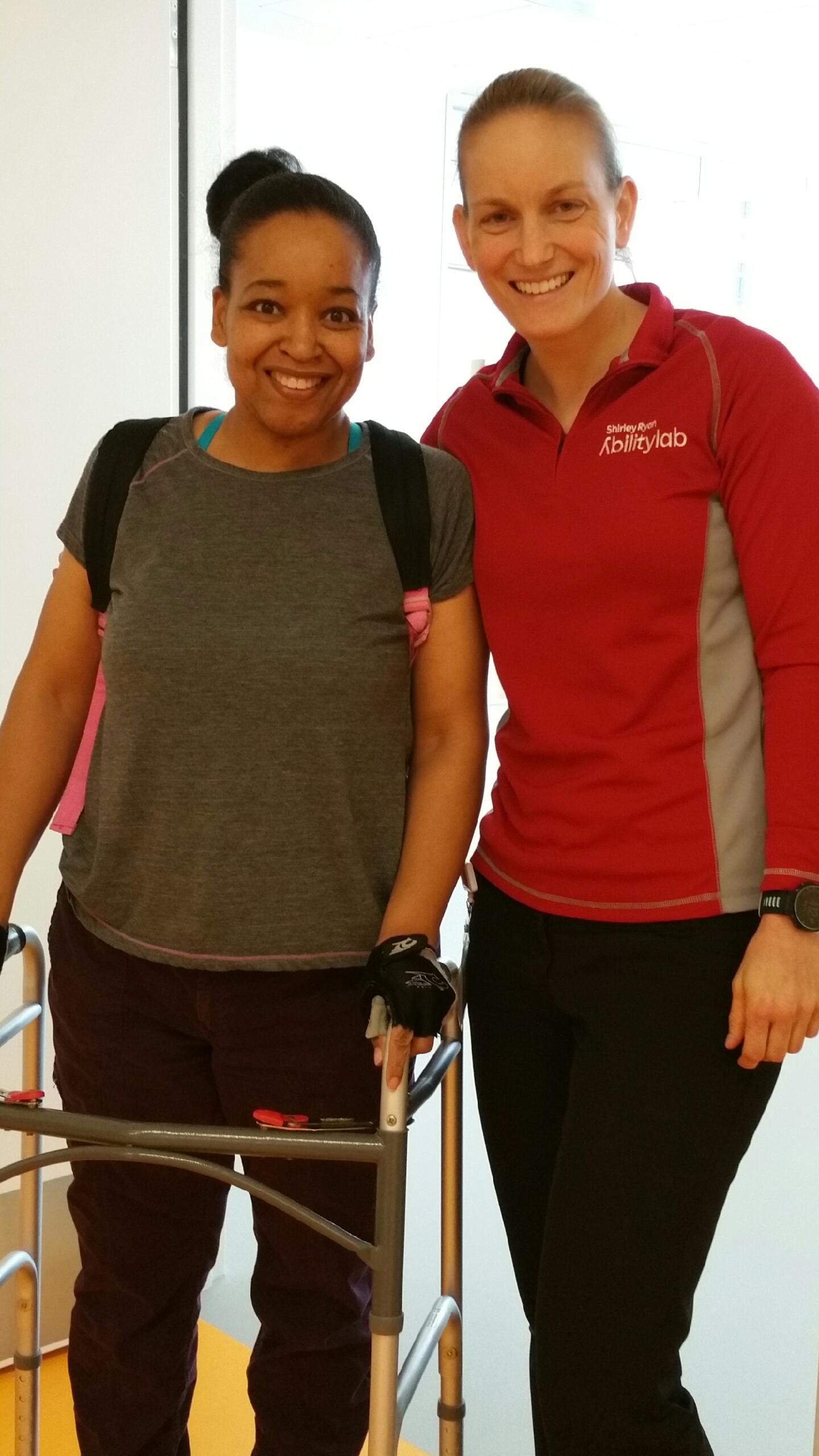
In 2012, Sharon Canady’s mom broke her vertebrae when she rolled off the couch in her sleep one night. Her bones were brittle from a vitamin D3 deficiency. Canady’s sister worked from home and was able to assist with their mom’s day-to-day care. On the weekends, Canady would help out and relieve her sister.
“Mom can’t cook. She can’t drive anymore. She can’t do her laundry. She can walk, but because of that injury she gets so winded just walking from the couch to the bathroom,” said Canady.
After three years, Canady, who is now 55, started to feel worn out. Not only was she helping her sister take care of their mom, but she still had her own chores to do, worked 50+ hours a week at her job, was active in her church, and had family obligations with her husband and two sons, ages 14 and 20. To make matters worse, Canady could see that both her mom, 74, and dad, 78, needed more attention. Something had to give. That’s when she decided to leave her job and become a home care aid for her parents through a privately owned agency. At $10.95 an hour, it’s a fraction of what she once made.
“While being a home care aid is very rewarding for me, I couldn’t do this if I were not married. The pay is very low; they don’t offer company paid benefits, and it’s hard work,” said Sharon, who lives on the Southwest Side of Chicago. “And my agency is a good agency. They tend to pay more. I called one that only paid $9.00 an hour.”
The paid caregiving workforce—nursing assistants and home care workers—is on track to add more new jobs to the economy than any other job in the next decade, according to PHI, a research and consulting organization widely recognized for its expertise on the direct care workforce. And the workforce is predominantly women of color–and those who rely on them. As a nation, we will need 5 million of these workers to meet the needs of the growing number of older Americans in their homes and other settings. But we currently face unprecedented shortages of workers because jobs pay so poorly.
“You know most people probably just look at direct-care workers and think that they might do light housework, they probably fix meals, bathe and clean up poop all day,” said Daniel Wilson, PHI director of Federal Affairs and a native Chicagoan who now lives in the Washington D.C. area. “But they don’t look at the vulnerable senior who may not have family in contact with them who can ensure that they’re getting nutrition every day. Some direct care workers go to the doctor’s appointments with them and tell the doctor, ‘No, this medication isn’t working’ Or, ‘They’re showing some signs of disease progression.’ They’re not medical personnel by any stretch, but, they can be the eyes and ears of the person who they’re taking care of who may not be able to speak for themselves.”
PHI’s #60CaregiverIssues campaign (60CaregiverIssues.org) is trying to draw public attention to this crisis. Many direct care workers, as a direct result of the Affordable Care Act, receive health care coverage from the Medicaid Expansion Program. If the Affordable Care Act is repealed, it could be detrimental to them.
“You know, you have a lot of individuals who are working 40 plus hours a week, but because the wage is not substantiated enough for them to meet their basic needs, they have to rely on Medicaid for their healthcare,” said Daniels.
Be Prepared
[ione_embed src=https://www.youtube.com/embed/HbrlVxO57xg service=youtube width=640 height=360 type=iframe]
One thing that many professionals preach to all people about caregiving is to be prepared. Whether you anticipate being a caregiver to older parents or you’re concerned about your own need for a caregiver in the future, having family meetings and sorting out the details will make the transition go smoother. Have you considered long-term insurance? Do you only want in-home care or are you open to a facility? Can a family member take on the caregiving or do you need to hire someone from an agency or even a medical professional?
“I know professionally and personally in the African American community, it is sort of, just assumed that we are going to care for our aging moms, dads, and other relatives. You know, we did not have the luxury of assisted living or any traditional facility [because of] income and culture. It was just not something that we subscribed to. Only in the latter 15 years has it become commonplace or acceptable, for lack of words, to do so,” said Angie Boddie, Director of Health Programs National Caucus and Center for Black Aging, Inc. NCBA (https://www.ncba-aged.org/) is a 47- year-old advocacy organization for low-income African American seniors. Their cornerstone programs are affordable safe-housing, training and employment, and health. NCBA is based in Washington, D.C., but has a Chicago office at 2600 S. Michigan Ave.
Regardless of your position, you don’t have to go it alone. Illinois, along with every state, has a health Ombudsman, a person appointed specifically to help you and your family make these types of transitions and navigate through the complicated healthcare system. The Illinois Long-Term Care Ombudsman Program aims to “protect and promote the rights of people who live in nursing homes and other long-term care settings.” They work to solve problems for residents and/or their families. You can find out more information about the Ombudsman in your area on the Illinois Department of Aging website (https://www.illinois.gov/aging/Pages/default.aspx), which also lists services and information for veterans. Or you can call the senior helpline at 1-800-252-8966.
If you’re looking for personal advice from someone you can relate to, consider reading “Being My Mom’s Mom,” by motivational speaker Loretta Anne Woodward Veney. In her book, Veney shares her personal journey before and after her mom’s dementia. She describes the experience as faithful, funny, heartbreaking and hopeful for those who may be going through the same thing.
“The one greatest lesson is, and it took me a while to catch onto this one, and that is we have to let go … and this is really important, I think, for us as African Americans. We have to let go of a lot of the traditions and things we had. Because when the sun’s down or stuff starts to creep in, and they get anxious or mean or mad or whatever, and then you still want to force them to come over on a holiday. If they’re not happy, nobody’s happy,” said Woodward, whose mom just turned 88 in February.
Veney, who lives in Prince George’s County, Maryland, has delivered more than 200 presentations nationwide on dementia and elder care planning for the Alzheimer’s Association, Alzheimer’s support groups, church groups and memory care facilities throughout the United States.
“I actually have a presentation called ‘Lifting the Spirit of the Caregiver,’ and in that, I talk about joy. You have to find joy in the little things. So if that’s sitting in a McDonald’s with a ninety-nine cent ice cream cone, then we have to find the joy in that. Because people will come over to us like, ‘Y’all are having so much fun!’ My mom has no idea what my name is or anything. She calls me ‘very nice person.’ Whenever I tell people that, they’re like, ‘Oh, that’s so sad.’ I’m like, ‘No. It’s not really sad because I have other friends whose parents get the really mean kind of Alzheimer’s and they cuss you out and all that.’ So I’m happy to be the very nice person when I compare myself to some of my friends. We just try to do the joy thing and take what the day gives you,” said Veney.
Younger People Need Caregivers, Too

Younger people sometimes get lost in the caregiver crisis because we assume most of the issues are related to seniors. But, after being under a lot of stress at work, Lolita Westbrook had a stroke in 2014 and became paralyzed from the waist down at age 45. When it was time for her to be released from the rehab center, she knew she couldn’t go home because she couldn’t do anything for herself. So she moved in with her aunt.
“I was confined to my room because I couldn’t move around and get to various parts of the house. I needed somebody to do laundry for me, clean my room, change my sheets, sometimes help me with my hair,” said Westbrook.
At first, she received a lot of assistance from Access Living Chicago (https://www.accessliving.org/), which enables people with disabilities to transition into autonomous community living. They provided her items to make her life easier and more comfortable, such as setting her up with a homemaker, getting her started on Meals on Wheels, and providing simple things like a plastic drawer of containers for her supplies and a rolling hospital table. But even with that, Westbrook desired more independence and moved into an assisted living facility for a short while before, this time, moving in with her mom.
“It was hard for me to find a facility because there’s not a lot of places that accommodate people my age. So there needs to be an adjustment made in Illinois, and probably everywhere else, because there are a lot of gunshot victims. There are a lot of young people having strokes and heart attacks. Where do they go to stay and to get help when most places are for seniors?” said Lolita.
Westbrook lost her caregiver coverage two years ago because she didn’t know she had to get “certified” to prove she still needed the service. She has spent hours on the phone with the Department of Health and Human Services trying to get her coverage back, but she keeps getting the runaround or being put on hold.
“I need my homemaker because that really helps my day. It helps me to push to the goal to be more independent, to get strong and to get into society being productive. I mean I’ve got at least 15 more working years,” said Westbrook.
RELATED LINK: The Retirement Crisis Facing African Americans